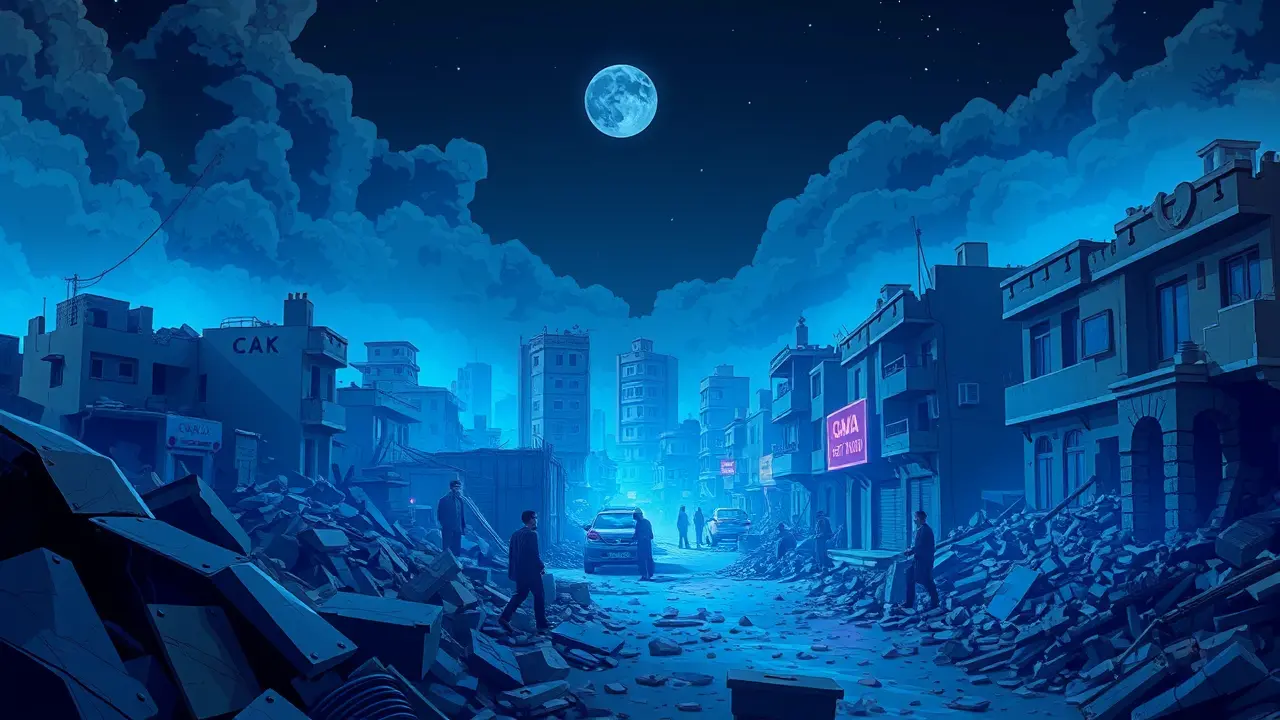Palestinians in Gaza anticipate ceasefire with mixed emotions.
A fragile, almost disbelieving quiet has begun to settle over the shattered streets of Gaza, a stark contrast to the unending roar of war that has defined life here for months. The news of a potential ceasefire, whispered through networks of mobile phones powered by dying batteries and spread by word-of-mouth across the ruins, has sparked a wave of celebration that is as desperate as it is heartfelt.In the few neighborhoods where buildings still stand, you can hear it—the distant, echoing cheers from families emerging from basements, the sporadic, joyful gunfire piercing the sky, a sound that only weeks ago meant terror. There is a palpable, collective exhalation, a raw, guttural relief that the immediate, visceral fear of death from above might finally be over.People embrace strangers, tears stream down faces caked with dust, and for a fleeting, powerful moment, the air is thick with the sheer, unadulterated euphoria of survival. But this celebration is a complex, bittersweet phenomenon, a temporary dam holding back a tsunami of delayed grief.The moment the adrenaline of survival begins to recede, the reality of what has been lost crashes in with a force as devastating as any bomb. This ceasefire, if it holds, is not a return to life, but a confrontation with a deathscape.It means that a mother, who has spent weeks operating on the pure, animal instinct of protecting her children, will now have to stop and truly process the image of her sister’s home reduced to rubble, with her entire family inside. A father, who has been scavenging for food and water under sniper fire, will have to finally acknowledge the empty space at the dinner mat, the son who will never come home from what was supposed to be a safe shelter.The grief has been put on hold, a luxury the living could not afford when every second was dedicated to the brutal calculus of staying alive. Now, with the theoretical promise of safety, comes the terrifying burden of memory.The ceasefire forces people to look up from the ground they’ve been crawling on and truly see the scale of the devastation—not just the physical obliteration of cities like Khan Younis and Rafah, which now resemble grotesque sculptures of concrete and rebar, but the evisceration of a society’s future. Schools, universities, hospitals, libraries, the entire intricate fabric of civic life, have been systematically erased.The trauma is generational; children who have known nothing but war will now have to learn how to live in a peace they cannot remember, their psyches irrevocably shaped by the sounds of drones and the sight of body bags. The immediate aftermath will be a logistical and humanitarian nightmare of biblical proportions.The task of recovering the thousands of bodies still buried under the rubble is a grim and monumental one, a process that will uncover new horrors daily and deny countless families the closure of a proper burial. The spread of disease in overcrowded, unsanitary displacement camps, where most of the population now resides without access to clean water or medicine, poses a second-wave catastrophe.And then there is the question of what comes next. A ceasefire is a pause, not a solution.It does not address the root causes of the conflict, the decades-long occupation, the blockade, the political failures on all sides that led to this horrific conflagration. There is a profound and justified fear that this is merely an intermission, a chance to bury the dead and draw breath before the next, perhaps even more destructive, round of violence begins.The international community watches, issues statements, and debates aid packages, but for the people of Gaza, the struggle is intensely personal and immediate. The celebration of a ceasefire, therefore, is not a celebration of victory or even of peace.It is the desperate, grateful gasp of a drowning person who has just been thrown a life preserver, only to find themselves adrift in a vast, cold ocean, surrounded by the wreckage of everything they once knew, with no land in sight. The war ends, and the real, long, and lonely battle with grief, trauma, and an unimaginable future begins.
It’s quiet here...Start the conversation by leaving the first comment.
© 2025 Outpoll Service LTD. All rights reserved.
